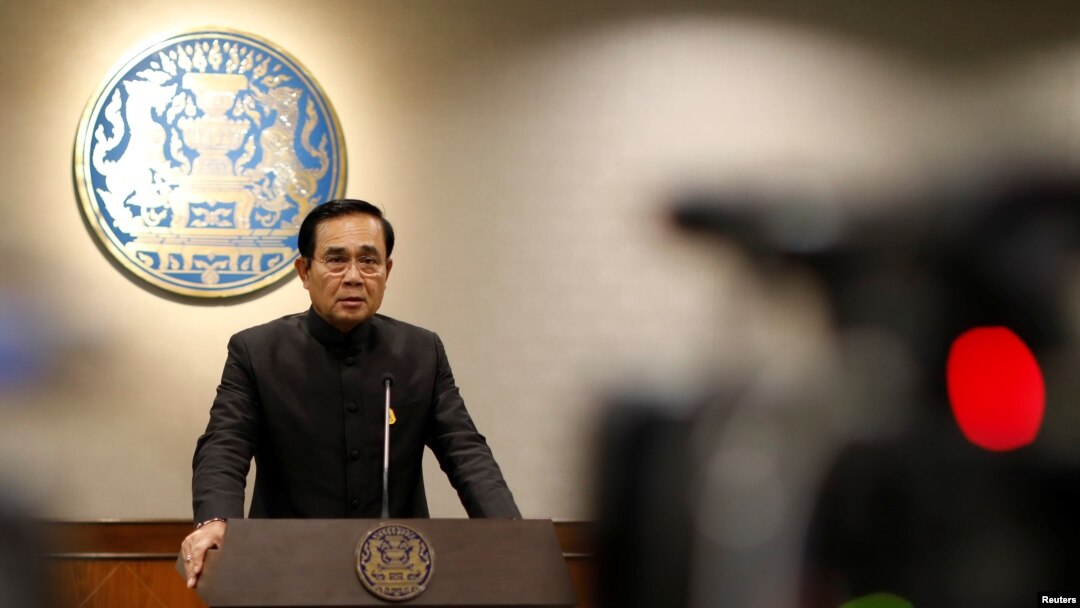The leader of Thailand's military junta, Prime Minister Prayuth Chan-ocha, will visit the White House in July following an invitation from U.S. President Donald Trump, a spokesman for the Thai government said on Monday.
The United States suspended high-level strategic dialogue and downgraded joint military exercises after a coup, led by Prayuth, overthrew an elected civilian government in 2014.
The invitation to the former army chief could signal a step by the United States toward re-establishing normal diplomatic relations with Thailand, its oldest ally in Asia.
Washington has sought to rally cooperation among partners in Asia to pressure North Korea over its nuclear and missile programs, and to counter China's ambitions in the disputed waters of the South China Sea.
Thai government spokesman Weerachon Sukondhapatipak told reporters that the talks would cover "trade, investment, commerce and security including security issues such as human trafficking."
He said the two governments were looking at fixing the visit for the end of July, but the dates had still to be confirmed.
Trump has reached out to other authoritarian leaders in the region including Philippines President Rodrigo Duterte, whose war on drugs has killed thousands.
Rights groups fear Trump's "America First" policy will result in Washington soft pedalling on human rights issues, and the visit to Washington by the leader of the Thai coup is expected to draw criticism.
The United States is Thailand's third-largest bilateral trading partner, after Japan and China.
In 2015, total two-way trade was estimated at over $37 billion. The United States is also one of the largest investors in Thailand, with over $11 billion in foreign direct investment in 2015.
Last year, the U.S. government rewarded the Thai government for improving anti-trafficking efforts with an upgrade in its annual report on human trafficking.
Thailand's agreement with Malaysia to build a wall to combat human trafficking across their porous border could strike a chord with Trump, who promised during his election campaign to build a wall on the U.S. border with Mexico. So far few details have emerged on the proposed wall between the Southeast Asian neighbors.



